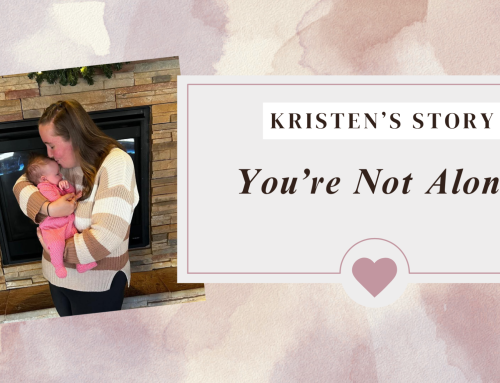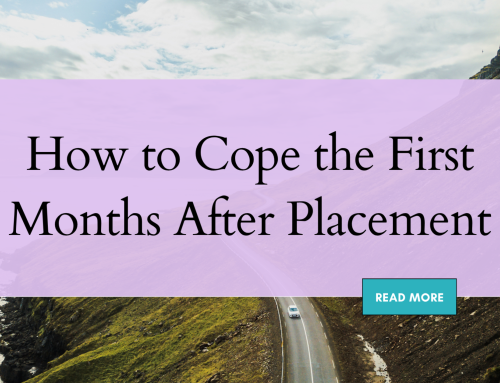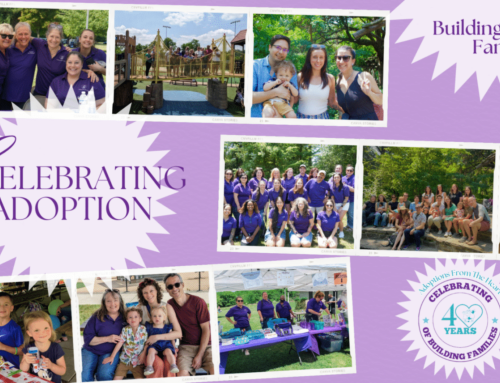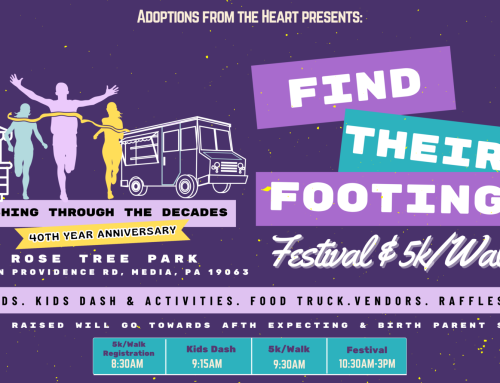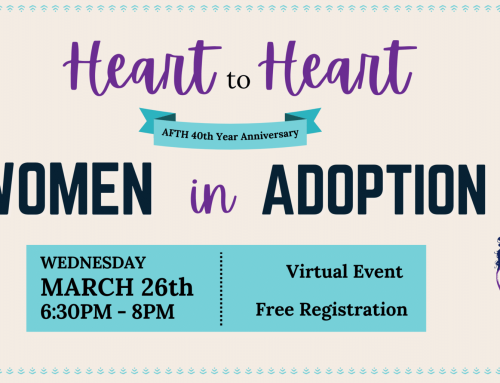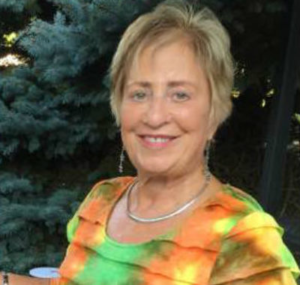 As an adoptee, she understands the experiences of the adoption process from a first-hand perspective. Her career as a social worker guided her from working at a public civil service agency to starting an agency of her own first named “The Adoption Agency” in 1985. She wanted her agency to enable birth parents to be a part of the adoption process and provide better access to open adoptions. Her small agency blossomed into Adoptions From The Heart and grew to become one of the largest open adoption agencies on the East Coast.
As an adoptee, she understands the experiences of the adoption process from a first-hand perspective. Her career as a social worker guided her from working at a public civil service agency to starting an agency of her own first named “The Adoption Agency” in 1985. She wanted her agency to enable birth parents to be a part of the adoption process and provide better access to open adoptions. Her small agency blossomed into Adoptions From The Heart and grew to become one of the largest open adoption agencies on the East Coast.
You started the agency over 30 years ago. What was the catalyst for you to start your own agency?
I am a social worker, starting from a public civil service agency. But I thought I could do [adoption placements] better in a way that involved the birth parents. I did a lot of searches between birth parents and adult adoptees; I always thought that the birth parents should have more information as to the child’s well-being and whereabouts. As an adoptee myself, my story also came into play.
What did you want to implement differently with your agency?
I wanted to make sure that birth parents had a say in the process; with whom the child would be placed, whether an infant or in foster care. I wanted the birth parents to have the chance to communicate with the adoptive parents.
I came across a Catholic adoption agency in Wisconsin that placed with open adoption, which surprised me given that it was a faith-based agency. Most agencies of the same kind were very resistant to that [in the 1970s and 1980s] because they believed that if the adoptees knew about their birth parents, they would then use that against their adoptive parents.
Your adoption was a closed adoption. Did you ever reconnect with your birth parents?
I searched for my birth parents before starting the agency. I met my birth mother, my birth brother and sister. I discovered that I was a completely different nationality from which I originally identified; my birth family is Albanian and Greek Orthodox. So, I had to now not only get to know my birth family, but I also had to know a whole new part of my identity.
Do you think the negative stigmas towards adoption has gone away?
I think [negativity towards adoption] improved over the years. What continues to shock me is the lack of awareness that the birth parents have in terms of passing along their medical histories for their child.
Do you think that the negative stigma lies more on the birth parents, adoptee, or adoptive parents?
Most definitely the birth parents because people who may not know about the adoption process view them as lazy and unfit to raise children. Those unaware of the process perceive their placement as “giving up”.
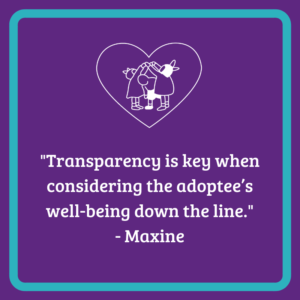 What message would you like to convey to those with negative perceptions about open adoptions?
What message would you like to convey to those with negative perceptions about open adoptions?
They probably have a negative impression because they feel as though the disclosure of their children’s adoption status will somehow pull them back to their birth families. Most adoptees know of their stories from an early age, particularly in transracial adoptions; transparency is key when considering the adoptee’s well-being down the line.
What are some things you have been told or asked about adoption that have shown people’s lack of awareness?
People have said to me“I’m sorry” when I disclose my adoption. Sorry for what? A family raised me in a loving home, and I am here now, doing what I love. I had the opportunity to meet my birth family and discover various aspects of myself. Another question that bothered me was “Why did [your birthparents] get rid of you?”. That is not the point of adoption, as everyone’s situation is different.
What do you hope to accomplish through your work at the agency?
Continuing openness is a huge thing. The disclosure of medical history is another issue that remains untouched, but it is important to the health of the child in the long-term.
Want to learn even more about Maxine and how her personal experience as an adoptee led her to develop AFTH into the agency it is today? See our very first episode of Adoptions From The Heart TV.

